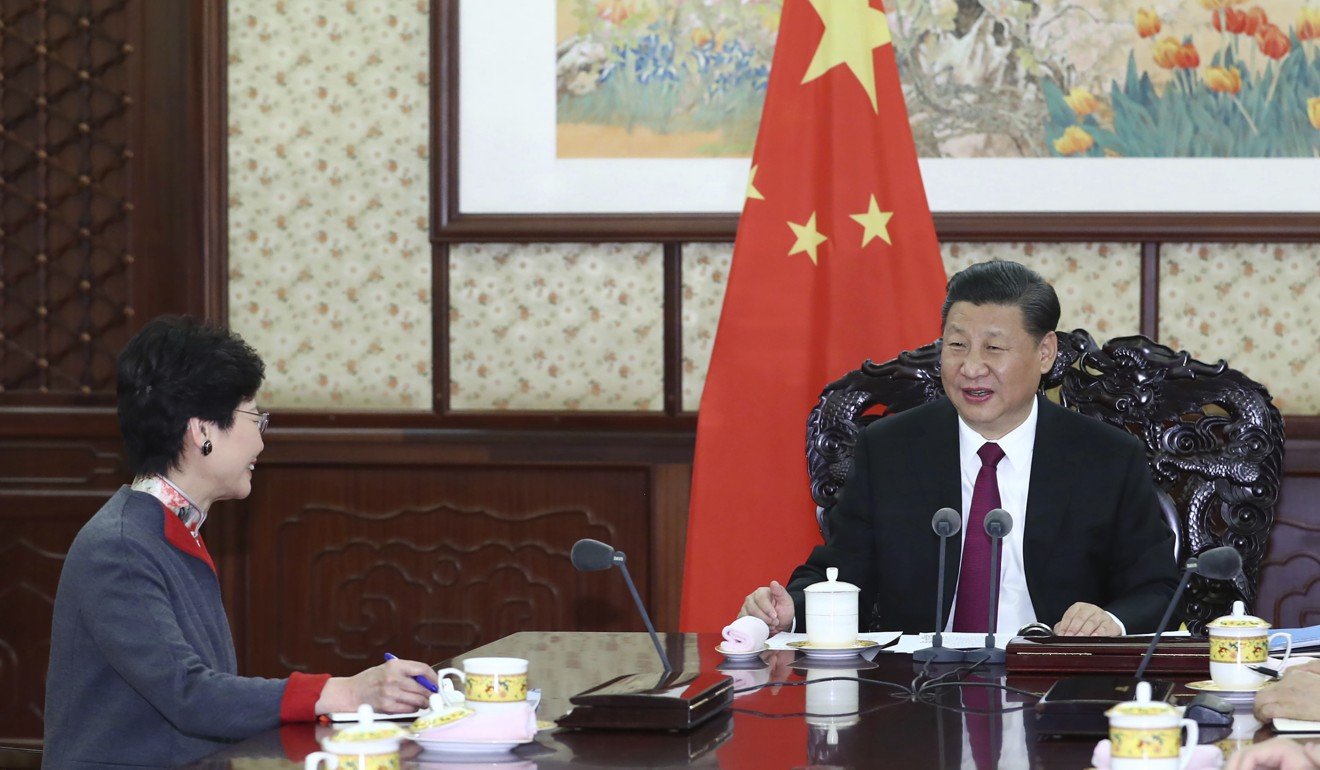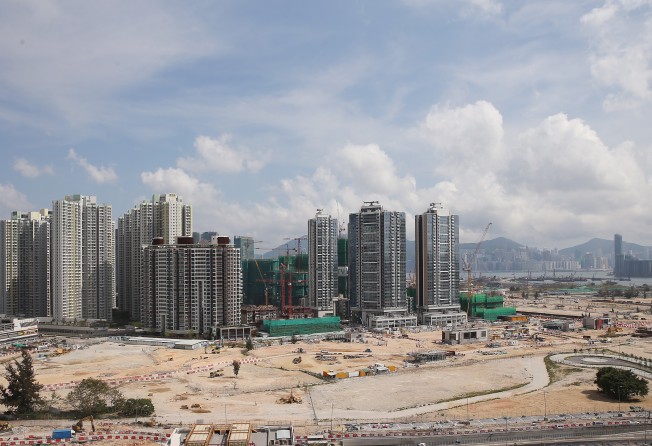
Tackling Hong Kong’s housing crisis is my top priority but I have not forgotten about national security law, Carrie Lam says
In a wide-ranging interview chief executive backs reclamation as best way to solve land supply issue, and hints that national security legislation is not far away

Hong Kong leader Carrie Lam Cheng Yuet-ngor has said tackling the city’s housing shortage will be her top priority in the coming year.
The chief executive vowed her government would seek to boost land supply through reclamation, improve living conditions, and give Hongkongers greater hope of one day being able to own a home.
But she added that her government would not promise to bring house prices down.
“In a free economy it is extremely difficult to curb the price of a particular commodity or service,” she said. “No government, not to say this administration of a relatively free economy, would promise to make property prices drop by a certain [percentage].”

In a wide-ranging interview with the media on Sunday, where Lam looked back on her first year in office, she also hinted that national security legislation would come sooner rather than later.
Beijing had allowed her freedom in dealing with issues within the city’s autonomy, the chief executive said, but she would not “shelve” the issue. Lam said she would continue to create “the favourable criteria” for implementing the legislation by improving public trust in the government.
“Trust and confidence need time to grow, Beijing understands this,” Lam said. “But I will not put it [the legislation] high on a shelf and wait for some other day to do it – we have waited too long for many things, including economic and livelihood issues.”
Lam, who served as the city’s No 2 official from 2012 to 2017, also said there had been improvements in the chief executive’s relationship with the executive and legislative branches in the past year. She also “respected and supported” the judiciary.
On Hong Kong’s economy, Lam said she hoped to help the city integrate into Beijing’s Greater Bay Area project, which seeks to transform Hong Kong, Macau and nine mainland cities into a global financial and innovation hub.
The chief executive will also continue her overseas visits to make sure other countries do not label Hong Kong as just “another Chinese city”.
On Friday, Lam announced a series of measures to tackle the city’s acute housing shortage. The raft of policies included building affordable housing on at least six prime sites originally reserved for luxury homes, as well as cutting the cord between government-subsidised housing prices and private market rates.
The chief executive made it clear on Sunday these initiatives were not intended to cool down property prices.
“The effect of our housing measures cannot be [measured by changes] in property prices, because prices can be affected by many factors,” she said. “We can make promises on how many homes to build, but that will depend on land supply as well.”
Lam said it was the government’s job to set directions on land and housing policies, and she would elaborate on the topic in her policy address in October.
“Land supply will be a key point in my policy address. If you ask me, I dare to say that we need to reclaim land,” she said.
A government-appointed task force has been consulting the public on ways to increase land supply. Land reclamation is one of the 18 options listed for the consultation, which is expected to finish in September.
Lam said while the task force will only submit its report in December, she will meet the group and discuss the results of the consultation exercise, so that she can explain the issue in her policy address.
Lau Siu-kai, vice-chairman of the Chinese Association of Hong Kong and Macau Studies, a top Beijing-based think tank, said Lam’s remarks showed that the local government could be taking a more active role in preparing for national security legislation within its current term, which expires in 2022.
“This government might not be able to make a national security law that is acceptable to both Beijing and Hong Kong people … but political groups can work with the government to let the people understand more about the national security threats that China is facing,” he said.
Samuel Hung Ka-yiu, founder and chairman of the Dolphin Conservation Society, said Lam’s preference for land reclamation would make the task force’s work much less meaningful.
Hung also said land reclamation, in waters with low bioecological value, could only be a long-term solution to Hong Kong’s acute housing shortage.
Chan Kim-ching, founder of the Liber Research Community, a local NGO focusing on land and development policies, also said Lam’s remarks could make a mockery of the ongoing consultation. “It makes the public engagement exercise meaningless. It also shows the government is not sincere in listening to public views.”
But Stanley Wong Yuen-fai, chairman of the government Task Force on Land Supply, said that Lam making her preference clear should not be viewed as pre-empting the ongoing consultation, or that the task force had a preset stance over land supply options.
“She is entitled to her views as of which land supply options should be more effective or more popular. I do not think she would exert influence on the task force.”
Meanwhile, Financial Secretary Paul Chan Mo-po said in a TVB interview on Sunday that the government was willing to consider easing mortgage conditions to help first-time homebuyers own their own homes when “a suitable time” came.
He said the government appreciated there were some buyers who could afford to pay the monthly mortgage instalments, but might not be able to afford the down payment.
“We shall keep an eye on it,” Chan said. “It is not impossible [to ease the mortgage conditions], but we have to wait for a suitable time to do so.”
Chan also said the government had no intention of removing the special stamp duty that was introduced in 2012 as a means of keeping the market cool.
“If we drop the measures now, it will add fuel to the fire,” he said. “And the interest rate [hike] also poses a risk.”